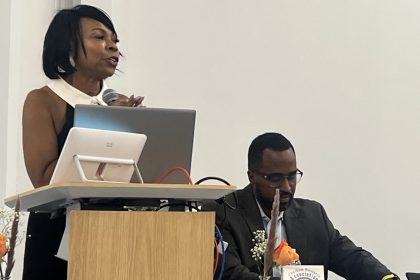
Rolling out had the pleasure of speaking with Dr. Shanicka Williams about Black women and fibroids.
About Dr. Shanicka
I am a board-certified family medicine physician and I love to teach individuals how to live a happier healthier life by emphasizing lifestyle modifications to control and eradicate chronic medical conditions that plague underprivileged communities as well as America at large. As a physician entrepreneur, having owned my own private practice, I also have a passion for teaching other physicians how to start their own medical practices even if they do not have starting capital.
Why are African American women suffering more from fibroids?
Uterine fibroids are noncancerous tumor(s) of the uterus. It has been shown that AA women are three times more likely to suffer from fibroids than their Caucasian counterparts. They also tend to grow faster and tend to occur at a younger age. The actual cause of this disparity is unknown but environment and genetics can play a role.
Does sexual intercourse play a factor in developing fibroids?
No one knows for sure what causes fibroids, but sexual activity can be significantly affected by uterine fibroids. They can cause dyspareunia (painful sex) for those who have them.
What are foods that can reduce the risk of fibroids?
Women who are overweight or obese are at an increased risk of developing uterine fibroids. Therefore, a healthy diet is very important for reducing this risk. Interestingly enough, eating a lot of red meat has been shown to increase the risk of fibroids. Having a well-balanced diet that includes green vegetables, fruits, and fish has shown to possibly protect women from getting fibroids.
Can fibroids be cancerous?
Rarely: 1 in 1,000 may develop a cancerous fibroid called leiomyosarcoma, although fibroids do not increase the risk of having this. Having a leiomyosarcoma also does not increase the risk of developing any other form of cancer in the uterus.
What are the symptoms of fibroids?
Most fibroids are asymptomatic (without having any symptoms). Some symptoms include abnormal uterine bleeding (which can lead to anemia), increased pelvic pressure (feeling bloated) with enlargement of the lower abdomen, increased urinary frequency, low back pain, pain during sex, and reproductive dysfunction (ie. infertility).
Is age connected to developing fibroids?
You usually see uterine fibroids in women of child bearing age in 30s-50s. Usually, fibroids can shrink after menopause.
What’s next for you?
As stated before, I have a passion for teaching. I look forward to spreading the truth about clean eating, obtaining healthier lifestyles and educating other physician entrepreneurs via media, webinars, health coaching, conferences, conventions and forums as well as authoring books on related topics. Stay tuned and look for Dr. Shanicka near you.











